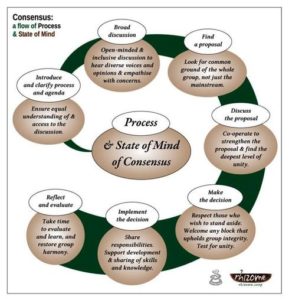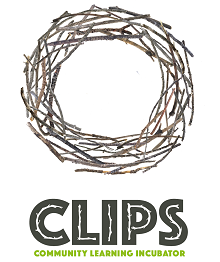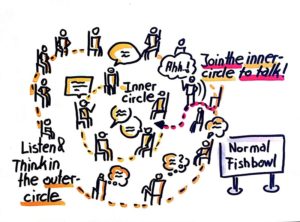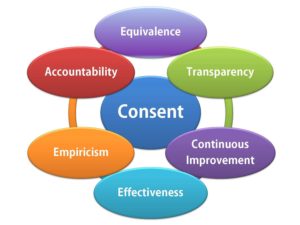CONSENSUS DECISION MAKING
Author of abstract: Lucilla Borio
 Consensus decision making is a process to make decisions based on trust, honesty, respect, inclusiveness and equal sharing of power. It derives from ancient cultures (it was historically used by many native american populations) and from the Religious Society of Friends, aka the Quakers. Consensus decision making is based on personal responsibility of all group members, and is aimed at preventing splits between majority and minority, that can undermine the group climate and ruin mutual trust. The first phase of the process is debate: every proposal is presented and openly discussed by all participants, who can bring changes and modifications, including substantial ones, until the proposal has the support of everyone in the group. In the decision making phase, one can hold three positions: giving consensus means that one approves of the proposal and is available to participate in the action directly; standing aside means that one agrees with the idea, but will not participate for personal reasons; blocking means that the proposal should not go forward. The block must be explained openly to the whole group, must be rooted in the superior interest of the group and not in personal preference. One block is enough to stop the proposal.
Consensus decision making is a process to make decisions based on trust, honesty, respect, inclusiveness and equal sharing of power. It derives from ancient cultures (it was historically used by many native american populations) and from the Religious Society of Friends, aka the Quakers. Consensus decision making is based on personal responsibility of all group members, and is aimed at preventing splits between majority and minority, that can undermine the group climate and ruin mutual trust. The first phase of the process is debate: every proposal is presented and openly discussed by all participants, who can bring changes and modifications, including substantial ones, until the proposal has the support of everyone in the group. In the decision making phase, one can hold three positions: giving consensus means that one approves of the proposal and is available to participate in the action directly; standing aside means that one agrees with the idea, but will not participate for personal reasons; blocking means that the proposal should not go forward. The block must be explained openly to the whole group, must be rooted in the superior interest of the group and not in personal preference. One block is enough to stop the proposal.





